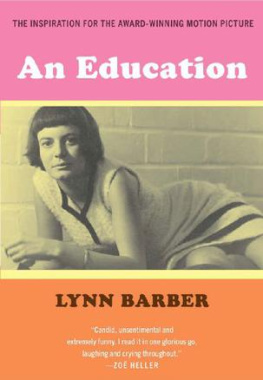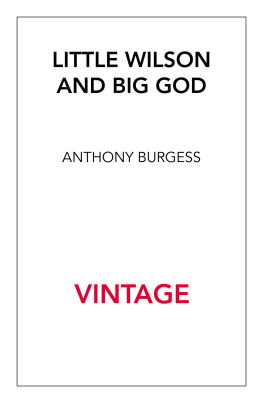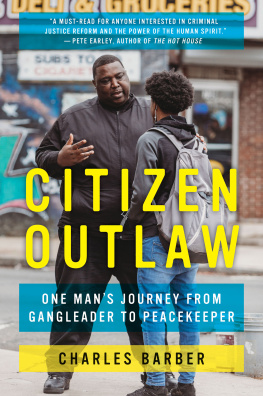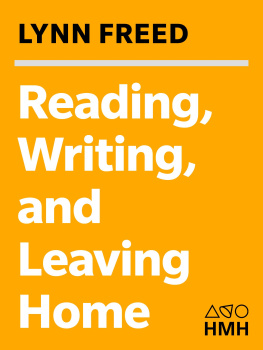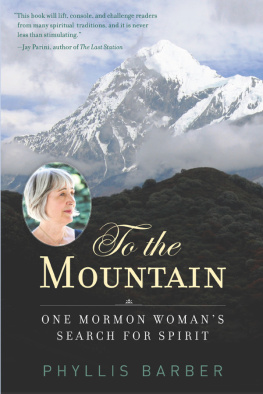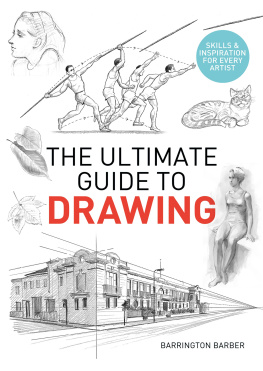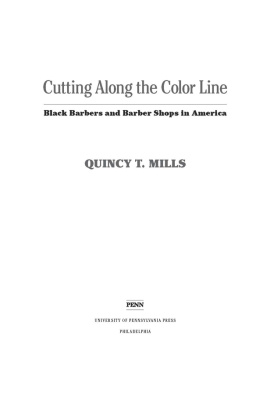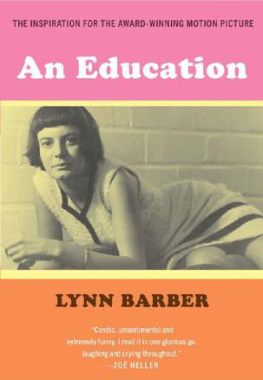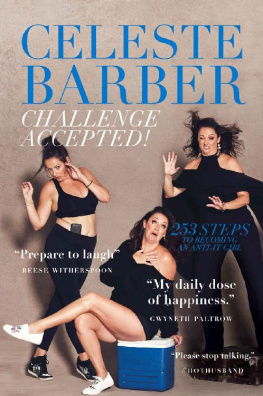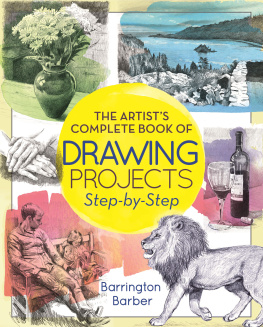An Education
Lynn Barber studied English at Oxford University. She began her career in journalism at Penthouse , and has since worked for a number of major British newspapers and for Vanity Fair . She has won five British Press Awards and currently writes for the Observer . She has published two volumes of her celebrated interviews, Mostly Men and Demon Barber .
By the same author
How to Improve Your Man in Bed
The Single Woman's Sex Book
The Heyday of Natural History
Mostly Men (collected interviews)
Demon Barber (more interviews)
An Education
LYNN BARBER

PENGUIN BOOKS
PENGUIN BOOKS
Published by the Penguin Group
Penguin Books Ltd, 80 Strand, London WC2R 0RL, England
Penguin Group (USA) Inc., 375 Hudson Street, New York, New York 10014, USA
Penguin Group (Canada), 90 Eglinton Avenue East, Suite 700, Toronto, Ontario, Canada M4P 2Y3 (a division of Pearson Penguin Canada Inc.)
Penguin Ireland, 25 St Stephen's Green, Dublin 2, Ireland (a division of Penguin Books Ltd)
Penguin Group (Australia), 250 Camberwell Road, Camberwell, Victoria 3124, Australia (a division of Pearson Australia Group Pty Ltd)
Penguin Books India Pvt Ltd, 11 Community Centre, Panchsheel Park, New Delhi 110 017, India
Penguin Group (NZ), 67 Apollo Drive, Rosedale, North Shore 0632, New Zealand (a division of Pearson New Zealand Ltd)
Penguin Books (South Africa) (Pty) Ltd, 24 Sturdee Avenue, Rosebank, Johannesburg 2196, South Africa
Penguin Books Ltd, Registered Offices: 80 Strand, London WC2R 0RL, England
www.penguin.com
First published 2009
Copyright Lynn Barber, 2009
All rights reserved
The moral right of the author has been asserted
Tarantella by Hilaire Belloc from Sonnets and Verses ( The Estate of Hilaire Belloc 1923) is reproduced by permission of PFD ( www.pfd.co.uk ) on behalf of The Estate of Hilaire Belloc.
An extract from Sea Fever by John Masefield is reproduced by permission of The Society of Authors and the literary representative of the Estate of John Masefield.
Except in the United States of America, this book is sold subject to the condition that it shall not, by way of trade or otherwise, be lent, re-sold, hired out, or otherwise circulated without the publisher's prior consent in any form of binding or cover other than that in which it is published and without a similar condition including this condition being imposed on the subsequent purchaser
ISBN: 978-0-14-193226-2
For Rosie and Theo
Contents
Preface
In 2002, I was chatting with a friend, a fellow journalist, when he happened to mention Peter Rachman, a notorious evil landlord in Fifties London. He started to explain who Rachman was, but I interrupted, Oh yes, I knew him slightly, when I was at school. My friend was incredulous: You knew Rachman? When you were at school ? So then I explained that, while I was still at school, I had this much older boyfriend, Simon, who was in the property game and that we sometimes went round to see Peter Rachman (though we called him Perec, his original Polish name) at his various nightclubs. Telling it baldly, like that, I could see it sounded barely credible, and when my friend kept asking questions sceptical questions, as a good journalist should I gave up the attempt to explain and changed the subject.
But afterwards I found myself thinking long and hard about Simon for almost the first time in forty years. I hadn't exactly repressed the memory, but I had effectively banished it to the very back of the cupboard. It was something I didn't like thinking about, didn't like talking about, saw no point in remembering. It was as if, say, I'd had a nasty car accident as a teenager which entailed many horrible operations but luckily I had made a full recovery so why go back over the gory details? There was no pleasure in remembering Simon so I preferred not to.
But then the Rachman conversation got me thinking, Well yes it was very odd that I knew Rachman when I was only sixteen. But the more I thought about it, the more everything about my life as a teenager seemed odd. Why was I, a conventional Twickenham schoolgirl, running round London nightclubs with a conman? Why did my parents let me? Almost to explain it to myself, I wrote down everything I could remember and found that, once I tapped this untouched spring of memory, there was no stopping it. So then being a great believer in Dr Johnson's adage that no one but a blockhead ever wrote except for money I shaped it into a short memoir and sent it off to my friend Ian Jack, who was editing Granta magazine. He had asked me to write an article on my love of birdwatching so An Education must have come as a surprise, but anyway he published it in the spring of 2003. You can find a slightly revised version of it here, in chapter two.
Soon after the Granta piece appeared, my agent contacted me to say she'd had an approach from a film producer called Amanda Posey who wanted to meet me to discuss making a film of An Education. It was the worst possible timing my husband was in the Middlesex hospital having a bone marrow transplant and I was virtually living in the hospital. But Amanda Posey said she would come to a nearby coffee bar and meet me any time I could get away. So, rather begrudgingly, I left the Middlesex for half an hour to meet her and her partner, Finola Dwyer. Amanda struck me as a very bright young woman but so unlike my notion of a film producer (I was thinking Harvey Weinstein) that I almost suspected she might be a fantasist. She asked if I wanted to write the filmscript myself and seemed delighted when I said no she said she already had a screenwriter in mind. The whole meeting seemed completely unreal but then everything at that time seemed unreal, so I said Yes, by all means make the film, and went back to the hospital and forgot about her.
Months later I received a contract the size of a phone directory and realised that Amanda Posey was serious. I also learned that the scriptwriter she had in mind was her boyfriend now husband Nick Hornby. This made the whole idea more plausible, especially when I met Nick. I found it odd (still find it odd) that this preeminently boy writer should so completely understand what it felt like to be a sixteen-year-old schoolgirl who was on the one hand very bright but on the other very ignorant about the world but, miraculously, he did. He even seemed to understand my parents, which is more than I could ever say myself.
Luckily I had the nous to put a clause in the contract saying I was allowed to see and comment on (but not alter) any script Nick Hornby wrote. This was an education in itself as the years and drafts went on (I think there were eight in all) I learned a great deal about the art of screenwriting from watching Nick's scripts evolve. The first draft stuck very closely to my story which cruelly exposed the fact that it had no proper ending it reached a dramatic climax and then dwindled away. Over the next few drafts he battled to create a good ending and eventually did; he also fleshed out characters who had been no more than names before and created whole scenes that were not in my story at all. The girl who used to be me became a cellist in the school orchestra, and bought a Burne-Jones at auction, and went to Walthamstow dog track, none of which I did, while her parents slowly mutated from infuriating dinosaurs into perfectly reasonable human beings. By draft eight I found myself actually weeping with sympathy for my father a weird and possibly even therapeutic moment in my life. The only bad thing Nick did was to change Simon's name to David, which was my husband's name. I have changed it back to Simon (though that was not his real name either) in this book.
Next page
